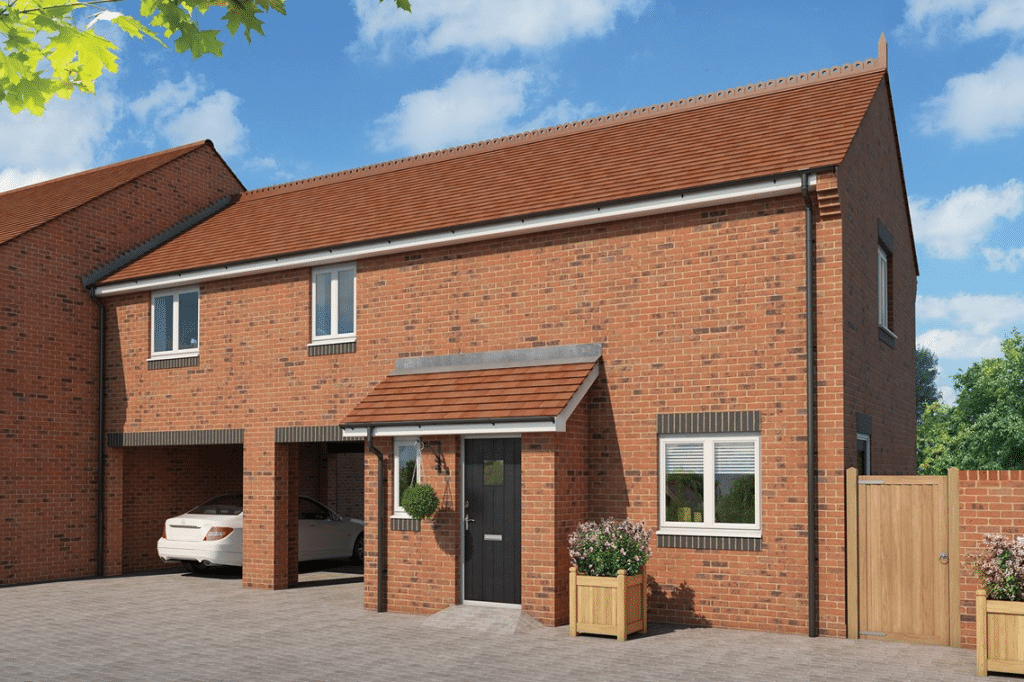A coach house is a type of property that typically has two units and is attached to the main house. It is usually used as extra living space for guests or relatives.
The coach house property can be found in many different parts of the world, including countries such as Canada, Australia, the United States, and England.
This typically has two units and is attached to the main house. It is usually used as extra living space for guests or relatives. The coach houses are not always attached to the main house, but this does happen in some cases. Coach houses are usually detached from the main home with their own entrance and driveway as well as their own garage or parking space.

How Do You Know If A Coach House Is Right For You?
People often think of coach houses as being a combination of flats and detached houses because they offer the best of both worlds. Also, housing prices are significantly less high than detached houses in the same location, allowing you to live at an address you wouldn’t otherwise be able to afford.
The coach house still offers many of the advantages of a detached property despite its low price. If you lived in an apartment, you would have no neighbours on either side of you-in fact, the only neighbours you would have are the downstairs garages, which are rarely used by their leaseholders.
These buildings provide a generous amount of outdoor space, which may make them stand out above their flat counterparts. There is almost always an open garage in the basement of the building that is plumbed with electricity and water for use by the residents.
Do Coach Houses Have Any Downsides?
Although there are some obvious advantages to purchasing a coach house, there are also a few disadvantages to consider before purchasing one. They sit over rows of garages that are generally unoccupied and poorly insulated, so many individuals consider these properties notoriously cold and hard to heat.
You should also consider the property’s resale value before making a decision about your bid. This type of property is definitely in demand, but it is likely to have a more limited demand than the typical family home, so it might take longer to sell, or maybe you have to lower the price to make a quick sale.
A home insurance policy is the one final issue you will need to address when buying a coach house. Due to the special nature of assets like these, mainstream insurers are unable to provide adequate coverage. You would have to pay for the freehold property and the leasehold garage under your insurance policy since the entire building is usually covered by one policy. Professionals with extensive knowledge of standards ensure coach houses. It is imperative that the insurance company you choose knows all the information and that it is willing to provide the appropriate coverage.
What To Look For In A House Insurance Policy
Coach houses are not covered by many insurers. In addition, it may require a specialist insurer since it is a non-standard form of home insurance. Among the biggest players in the insurance industry, they focus on more simple assets with comparable levels of support rather than small specialisations.
Does coach house insurance cost a lot?
It is not necessary for a coach house to be more expensive to insure than comparable homes. Larger brands tend to overestimate the risks, so we recommend you use a professional who knows coach houses.
Conclusion: What is it like to live in a coach house

There are many different types of coach houses. Some are modern, and some are classics. Some have separate entrances, and others share a common front door.
There is a wide range of coach house designs, including those that look like traditional homes, those that have been converted from garages, and those that have been built from scratch.
The most common type of coach house is the single-family detached home with a separate entrance on the side or back of the property. These houses typically have one or two bedrooms with an attached garage or carport for parking.
Frequently Asked Questions:
Is a carriage house a good investment?
Carriage houses are typically found in older neighbourhoods. They are typically attached to a house and can be used for storage or as a second living space.
These houses can be a good investment for someone who is looking to buy or rent property in an older neighbourhood. They provide more value than detached homes because they are more likely to stay in the neighbourhood, which means that the value of the home will increase over time.
How does a freehold coach housework?
A freehold coach house is a type of property that allows the homeowner to live in the home for free but also be able to rent out the living space for a profit.
This is a type of property where you can live in the house for free and also rent out the living space for a profit. It’s commonly known as a “coach house” because it used to be built around horse-drawn carriages.
The key feature of this type of property is that it allows homeowners to live in their homes and still generate income off their properties.
Who owns the garages on a coach house?
In a coach house, the owner of the garage is considered to be the owner of the coach house. This is because the garage is usually attached to the main residence.
The question of who owns garages in a coach house is one that has been debated for decades. In general, if you live in a shared property where each unit has its own garage, then each unit’s owner would own their respective garage.






